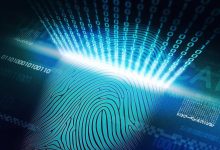This new cipher tech could break you out of your Gen AI woes

The computational load increases substantially in Gen AI use cases, where models require processing massive datasets. For instance, training a simple machine learning model on homomorphically encrypted data can take several orders of magnitude longer than standard training.
This challenge is exacerbated by encryption schemes like Cheon-Kim-Kim-Song (CKKS) or Brakerski/ Fan-VerCauteren (BFV), which need to manage issues such as noise accumulation and bootstrapping, particularly in scenarios involving deep computations like neural network inference.
Efforts to mitigate these computational demands include the development of optimized libraries like IBM’s HElib, Microsoft SEAL, and PALISADE, which aim to reduce processing times by refining encryption algorithms and bootstrapping techniques. Research also focuses on hybrid approaches, such as combining homomorphic encryption with lightweight encryption like AES to balance security and speed.
These innovations aim to make homomorphic encryption more practical for real-world applications but scaling it to high-demand Gen AI scenarios remains a significant hurdle. If they prove effective, it could drive Gen AI adoption to unprecedented levels.



